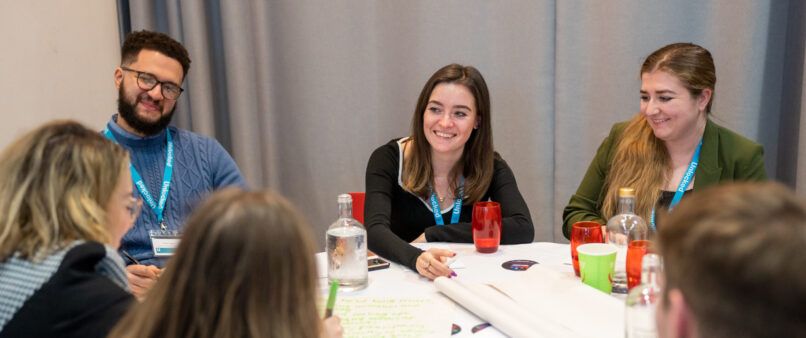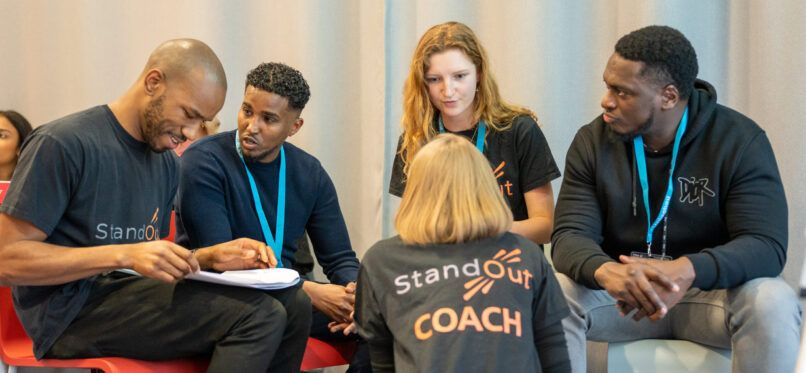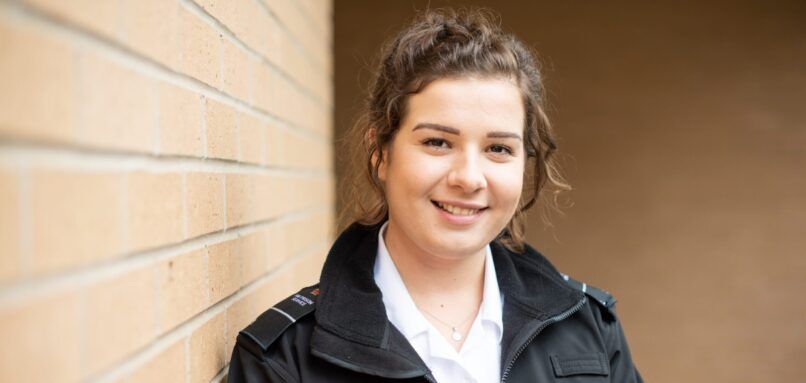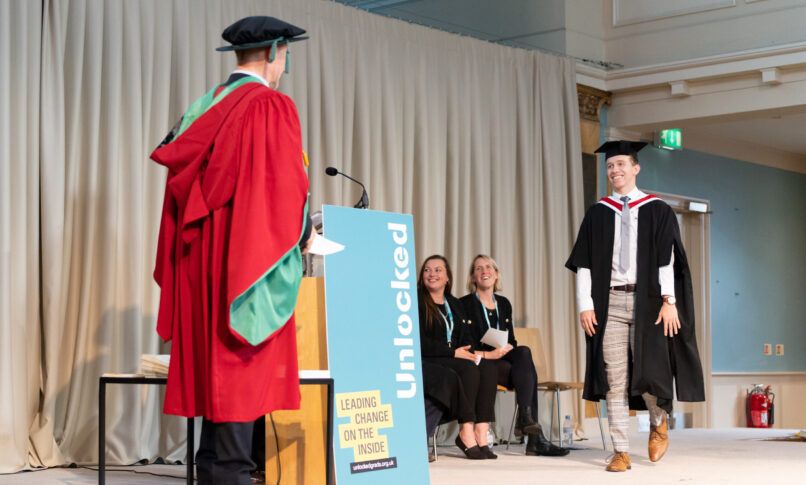“Listening to prisoners is clearly not enough to constitute a ‘good’ officer; staff need to be actively giving prisoners agency in their own decisions and partnering with them in pursuing goals.” – Iona Warren
This special edition of the Prison Service Journal is dedicated to the research undertaken by participants on the Unlocked Graduates Leadership Development Programme as part of their MSc in Applied Custodial Leadership. Their research papers shine a light on the often-forgotten voice of the Prison Officer.
These participants are not policy makers or academics, but they do have a unique perspective and insight from having lived and breathed the reality of prisons from the lens of a frontline member of staff.
The Unlocked participants who authored these papers started on the landings in September 2020, as the world was still getting to grips with the COVID pandemic, whilst prisoners spent unprecedented time behind their cell door, and access to family visits, education, and other purposeful activity was either suspended or severely reduced.
Whilst these experiences have undoubtedly shaped their experiences on the frontline, you will see a variety of topics and areas covered in this special journal edition:
The first paper, written by Ayeisha Vaze, explores the impact architecture has on prisoner wellbeing. As an Ambassador (graduate of the programme), Ayeisha is now Assistant Private Secretary at the Ministry of Justice.
Prisons were historically designed with the purpose of showcasing retribution, civic pride and the invincibility of the state and therefore look oppressive in design.
Ayeisha Vaze

The second paper, written by Lizzie Davison, offers some solutions for prison staff working with neurodiverse prisoners in the male estate. Lizzie is now working as an Assistant Private Secretary to the Permanent Secretary of the Ministry of Justice.
If the sentence or sentence-plan is not presented to prisoners in a way that they can understand, a sense of ‘powerlessness’ translates into direct discrimination.
Lizzie Davison

Beth Sutherland’s research reviews the gaps in provision for female prisoners with learning disabilities and makes recommendations to improve the support available. Beth is now working as a Policy Advisor within the Prison Policy Directorate in the Ministry of Justice.
Ministry of Justice also highlighted that whilst there are learning disability accredited programmes within prisons, these programmes are targeted at males with additional learning needs.
Beth Sutherland

We then move onto a paper written by Iona Warren, exploring the five principles of Trauma Informed Practice in a women’s prison. Iona works for StandOut charity, supporting men leaving prison and settling back into the community.
Listening to prisoners is clearly not enough to constitute a ‘good’ officer; staff need to be actively giving prisoners agency in their own decisions and partnering with them in pursuing goals.
Iona Warren

The following paper is written by Scarlett Thomas, who created two Trauma-Informed spaces in her establishment. Scarlett is currently travelling on a career break from her role as a Prison Officer at HMP Liverpool and is now an ambassador of the Unlocked Graduates Programme.
Prison Officers are a part of the ‘forgotten service’ and receive little recognition for all their hard work.
Scarlett Thomas

Moving onto thinking about leading change, Galina Ignatova and Amy Viner interviewed staff about their perceptions of the key worker scheme, making recommendations for practice. Galina is a Safety Analyst within HM Prison Service, whilst Amy is now working as a Policy Adviser within the Priority Projects Team in the Ministry of Justice.
In prison settings, keyworker meetings are part of rehabilitative work conducted by prison staff in supporting offenders’ positive development through trusting relationships.
Galina Ignatova

Key Worker can provide motivation and support to prisoners to reduce their Criminogenic Needs, equipping them with the human goods necessary to live a better life.
Amy Viner

Beth Kendle looked more broadly at the barriers to effective communication in a custodial environment. Beth is currently working as a Regional Corruption Prevent Manager within the Counter Corruption Unit at His Majesty’s Prison and Probation Service
Communication between staff in both prisons continue to need significant development to be more effective, both in understanding localised issues and cultures.
Beth Kendle

Finally, Max Baker explored the link between use of force and rehabilitative culture, finding an inextricable link. Max had been working as a Band 5 Apprenticeship Coach at HMPPS and has recently joined Unlocked Graduates as a Mentoring Prison Officer.
If prison officers were trained in rehabilitative culture, it may be easier to implement rehabilitative practices at the establishment, leading to better outcomes for prisoners and better relationships between prisoners and staff.
Max Baker

This research has the ability to make a deep and lasting impact. The papers ask vital and challenging questions, offering solutions, and providing suggestions for change.
All these papers were co-edited by the Prisons and Custody team at Leeds Trinity University — Professor Danielle McDermott, Associate Professor Claire Vilarrubi and Dr Sarah Waite, as well as Gemma Buckland, Director of Do It Justice.
Unlocked Graduates are grateful for the partnership with Leeds Trinity University, in particular the expertise of the team in operational prison roles.
Read the full Unlocked Graduates edition of the Prison Service Journal here.